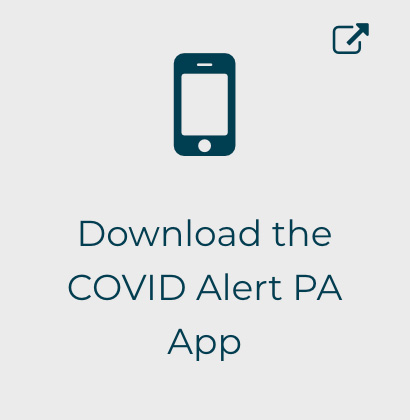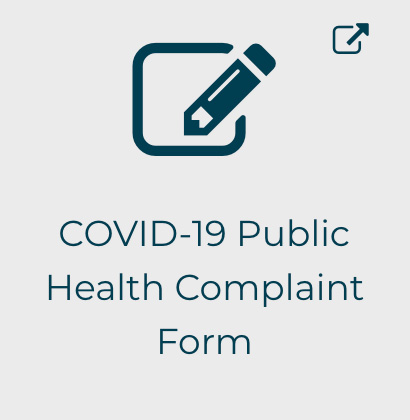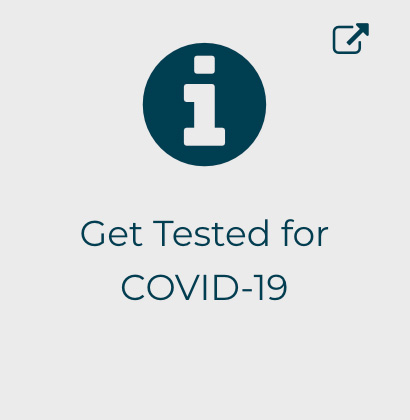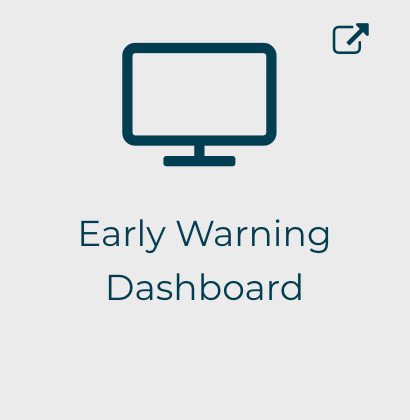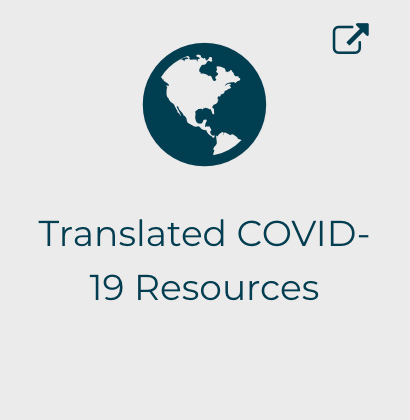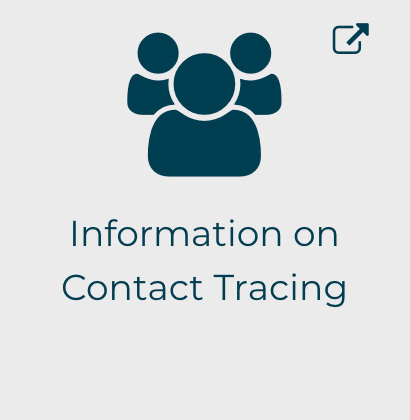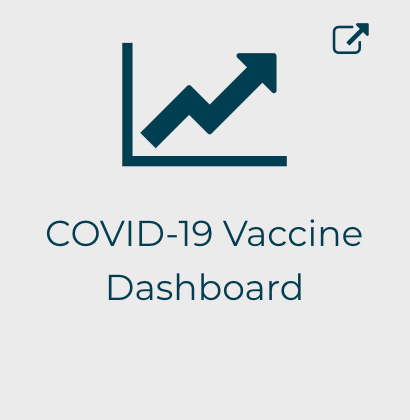COVID-19 Information & Resources
Senator Costa Hosts Telephone Town Hall on COVID-19 Vaccine Update
Audio PlayerSenator Costa Hosts Telephone Town Hall on Coronavirus
Audio PlayerSenator Costa Hosts Telephone Town Hall on Coronavirus
Audio PlayerDepartment of Health Resources
LIVE daily briefings from the PA Department of Health:
pacast.com/live/doh or www.governor.pa.gov/live/ or watch on Facebook
Resources
The spread of COVID-19 is a rapidly evolving situation statewide and in Allegheny County. Below, please find links to local, regional and state sites that can help you navigate health recommendations, closures, and resources.
Economic Assistance:
- Information for PA Employees Impacted by COVID-19
- U.S. Small Business Administration: COVID-19 Small Business Guidance & Loan Resources
- Hebrew Free Loan Association’s Coronavirus Financial Bridge Loan Program
- Business Resources from the PA Dept. of Community & Economic Development
- Emergency assistance to service industry employees who are parents
- U.S. Chamber of Commerce
- PA Chamber of Commerce
- Honeycomb Crowdfunded Small Business Relief Loan
- Pittsburgh Foundation: Emergency Action Fund
- COVID-19 Unemployment Compensation Guidance & Resources
- The University of Pittsburgh’s Institute for Entrepreneurial Excellence (resources, technical assistance, and webinars)
Federal Information
- FAQ – Federal Stimulus Package (U.S. Rep. Conor Lamb)
- Federal Resources (U.S. Rep. Mike Doyle)
- Emergency Family & Medical Leave Expansion Act and Emergency Paid Sick Leave Act (U.S. Dept. of Labor)
- IRS Information
- CDC
- CDC Coronavirus Self Checker Tool (click on the orange self-checker box in the lower right hand corner of the page)
- U.S. Treasury Department (Paycheck Protection Program and other resources for small businesses)
- U.S. Senate Committee on Small Business & Entrepreneurship – The Small Business Owner’s Guide to the CARES Act
- How to make a homemade mask
Mayores
- COVID-19 Resource Guide for Older Pennsylvanians (PA Department of Aging)
- Call the Allegheny County SeniorLine at 412-350-5460 for information on services and assistance for seniors
- Pharmaceutical Assistance Contract for the Elderly (PACE) Program can help older adult enrollees with prescription refill extensions
- Pittsburgh Senior News
State Information
- Apply for a mail in ballot for the Abril 28 primary
- PA 211
- COVID-19 & the Census
- Covid-19 Community Preparedness and Procedures Materials
- PA Government general guidance and information
- Guidance for Pet Owners
- Child Care Centers for Life-Sustaining Workers
- PA Department of Revenue Online Customer Service Center
- PennDOT Services (Drivers Licenses, Real ID Extension, etc…)
- Consumer Protection Alerts (PA Attorney General)
- PA Higher Education Assistance Agency COVID-19 Information
- Mental Health Support & Referral Helpline: 1-855-284-2494 (for TTY, dial 724-631-5600)
- Report price gouging to PA Attorney General’s Office: pricegouging@attorneygeneral.gov
- Unemployment Rights and Resources (PA Attorney General)
Regional Information
- Allegheny County Department of Health (24/7 hotline with United Way: 1-888-856-2774)
- Responding to COVID-19 Rumors (Allegheny County)
- Autoridad Portuaria
- Pittsburgh International Airport
- Allegheny Conference of Community Development
Education Resources
- Allegheny County Intermediate Unit
- Free active learning platform for children at home
- School Guidance/Answers to Frequently Asked Questions
Social Services
Latest News
Wolf Administration and Rite Aid Partner to Ease COVID-19 Vaccine Scheduling for People with Intellectual Disabilities and Autism
Governor Tom Wolf today announced a partnership with Pennsylvania-based Rite Aid Pharmacy to ease access to COVID-19 vaccinations for people with intellectual and developmental disabilities. “All Pennsylvanians are now eligible to receive COVID-19 vaccines, but we...
Wolf Administration to Lift Mitigation Orders On Memorial Day, Masking Order Once 70% Of Pennsylvania Adults Fully Vaccinated
Harrisburg, PA - The Wolf administration, in coordination with the COVID-19 Vaccine Joint Task Force, announced today that mitigation orders except masking will be lifted on Memorial Day, Lunes, Mayo 31 at 12:01 AM. The current order requiring...
Department Of Health: Over 8.7 Million Vaccinations To Date, First Doses Of Vaccine To 50.6% Of Population, PA Ranks 10th Among 50 States For First Dose Vaccinations
Harrisburg, PA - The Pennsylvania Department of Health today confirmed as of 12:00 a.m., Mayo 3, there were 3,133 additional positive cases of COVID-19, bringing the statewide total to 1,161,619. There are 2,151 individuals hospitalized with COVID-19. Of that...
Department Of Aging: PACE COVID-19 Vaccine Partnership With Walmart Has Helped More Than 25,000 Vulnerable Older Adults
Harrisburg, PA – The Pennsylvania Department of Aging today announced that its PACE prescription assistance program, working together with Walmart, has helped more than 25,000 older Pennsylvanians get a vaccination appointment. The PACE/Walmart Vaccine...
Department Of Health: Resume Use Of Johnson & Johnson Vaccine Following FDA/CDC Recommendation
Harrisburg, PA - The Pennsylvania Department of Health today notified all COVID-19 vaccine providers that the pause in administering doses of the Johnson & Johnson (Janssen) vaccine has been lifted. The move follows updated guidance announced today by the...
Department Of Health: Over 7.9 Million Vaccinations To Date, More Than 3.1 Million Fully Vaccinated, First Doses Of Vaccine To 46.2% Of Population, PA Ranks 10th Among 50 States For First Dose Vaccinations
Harrisburg, PA - - The Pennsylvania Department of Health today confirmed as of 12:00 a.m., Abril 24, there were 4,164 additional positive cases of COVID-19, bringing the statewide total to 1,131,014. There are 2,702 individuals hospitalized with...
Department Of Health: Resume Use Of Johnson & Johnson Vaccine Following FDA/CDC Recommendation
Harrisburg, PA - The Pennsylvania Department of Health today notified all COVID-19 vaccine providers that the pause in administering doses of the Johnson & Johnson (Janssen) vaccine has been lifted. The move follows updated guidance announced today by the...
Department Of Health Updates COVID-19 Vaccine Dashboard To Highlight Race And Ethnicity Data By County
Harrisburg, PA - Department of Health Acting Secretary Alison Beam today announced the latest update to the COVID-19 Vaccine Dashboard that provides demographic data such as race, ethnicity, gender and age of individuals who have been vaccinated by...
Department Of Health: Over 7.7 Million Vaccinations To Date, More Than 3 Million Fully Vaccinated, First Doses Of Vaccine To 45.3% Of Population, PA Ranks 10th Among 50 States For First Dose Vaccinations
Harrisburg, PA - The Pennsylvania Department of Health today confirmed as of 12:00 a.m., Abril 23, there were 4,188 additional positive cases of COVID-19, bringing the statewide total to 1,126,850. There are 2,808 individuals hospitalized with COVID-19. Of that...
COVID Conversations: Nursing Home Community During COVID-19
COVID Conversations: Housing and Utilities in a Health Crisis
COVID Conversations: Education in the Commonwealth
COVID Conversations: Developing a vaccine and treating COVID-19
COVID Conversations: What grocery store workers want you to know
COVID-19 Vaccine Town Hall and FAQ
Why should I get the COVID vaccine?
- It will be the combination of vaccination and continued mitigation measures such as mask wearing whenever outside your home, social distancing and avoiding large gatherings, and regular handwashing and sanitizing that will end this pandemic.
- Creating “herd immunity” to COVID-19 through the will slow the spread of this virus.
- Those who have already had COVID-19 may have some immunity to future infection, but that is not guaranteed, and it is not known how long it will last.
- Being infected with the virus itself can lead to prolonged health issues and even death.
- Vaccination is the safest way to create herd immunity and protect vulnerable populations who may not be able to get the vaccine themselves.
- It is believed based on research from other vaccines, that even those who do still get COVID-19 but have had the vaccine will have more mild symptoms then they would have had without the vaccine.
- This is an example of training the immune system to recognize and resist the virus.
- Stopping community spread is essential to ending this pandemic. Vaccines are essential to stopping community spread and ending the COVID-19 pandemic.
When will I get it?
- In Pennsylvania, distribution of the vaccine will be done in three phases due to the limited number of vaccines available throughout the country at this time.
- Phase 1A: health care personnel and residents of long-term care facilities (LTCFs)
- Within this phase, it is most critical that healthcare personnel with the most patient contact receive the vaccine first, especially those on COVID-19 specific treatment units.
- LTFCs that qualify as Skilled Nursing Facilities will also receive priority in this phase as their residents are the most medically vulnerable.
- Phase 1B: First Responders, Critical Workers, and those in Medically High-Risk Populations.
- Phase 2: Will begin when supply of vaccine allows, will focus on the subsections of Phase 1 who have not yet received a vaccine.
- Phase 3: When full supplies allow, all the general population will be encouraged to receive the vaccine.
- Phase 1A: health care personnel and residents of long-term care facilities (LTCFs)
- All COVID-19 vaccines will be voluntary. There are no federal or state mandates that say someone must get the COVID-19 vaccine.
- Some workplaces may require the COVID-19, just like some workplaces require their employees to get the flu shot.
How was it made so quickly?
- The timeline to develop a vaccine depends on the demand for the vaccine, the funding to research, and the ability to conduct large scale clinical trials to make sure the vaccine is safe.
- Development of a COVID-19 vaccine began in Marzo, as soon as data was available on the virus.
- Previous vaccine research related to the H1N1 flu, and other coronaviruses such as SARS and MERS, allowed a head start on the COVID-19 vaccine because related research and development processes were already in place.
- There was also unprecedented world-wide cooperation among scientists and institutions in data and research sharing, allowing scientists to get faster answers to questions that might have taken years to discover if they had been working alone.
- Funding for vaccine research is also a barrier to development, but with COVID-19, governments and private institutions came together under umbrella’s like the U.S.’s “Operation Warp Speed” to ensure that funding for research and production would not be a barrier to getting a vaccine to people as soon as it was safe.
- All appropriate safety and ethics guidelines were followed in the clinical stages of approving the COVID-19 vaccines.
- Vaccine trials take place in three phases.
- The COVID-19 vaccine was able to go through these trial phases faster while still maintaining all safety and ethics protocols by utilizing all available data and the availability of large populations of diverse volunteers who participated in COVID-19 vaccine trials.
- All vaccines approved for distribution in the United States have been thoroughly assessed by the FDA and the CDC for distribution.
What is the COVID-19 Vaccine?
- The vaccine for COVID-19 allows our bodies to build immunity to this virus without contracting the virus.
- The COVID-19 vaccine does not contain the live COVID-19 virus, it contains either safe genetic material of the virus, harmless proteins of the virus, or a weakened version of a live virus similar to COVID-19, but not the actual virus.
- NO VACCINE CAN GIVE YOU THE VIRUS IT IS DESIGNED TO PROTECT YOU AGAINST.
- Many people get vaccines for things like the flu and think that the vaccine gave them the virus itself because they later got sick. This is not true.
- Viruses take a few days to travel through your body before you show symptoms of the virus, so you may have already been sick before you got the vaccine.
- Vaccines also can take a few days to become effective once they are in your body, so you can also still contract a virus a few days after you have gotten a vaccine because your body has not been able to build up enough immunity yet.
- Many of the COVID-19 vaccines will require TWO DOSES, a few weeks apart.
- Like a flu vaccine, there can be symptoms after you get the COVID-19 vaccine. These symptoms are mild and indicate the vaccine is working like it should to train your immune system.
- Symptoms of the COVID-19 Vaccine can include:
- injection site pain
- tiredness
- headache
- muscle pain
- chills
- joint pain
- fever
- injection site swelling
- injection site redness
- nausea
- feeling unwell
- swollen lymph nodes (lymphadenopathy)
- Symptoms from the vaccine will not happen to everyone, but if these symptoms worsen, or you think you are having an allergic reaction to the vaccine, contact your healthcare provider or emergency medical services immediately.
What is a vaccine?
- The first widely used vaccine, and the first vaccine to eradicate a disease, was the smallpox vaccine developed by British scientist Edward Jenner in 1796.
- By 1980, smallpox was the first disease to be eradicated by vaccine, and from 1980 to 2018 it is estimated that 150 to 200 million lives have been saved from a death by smallpox.
- When most people in a community are vaccinated against a disease, the ability of the pathogen to spread is limited. This is called ‘herd’ or ‘indirect’ or ‘population’ immunity. Creating herd immunity through vaccinations prevents infection of vulnerable populations who cannot be vaccinated such as babies and the immunocompromised.
- Vaccines are a safe and effective way to prevent death and stop the spread of infectious disease and have been doing so for decades.
COVID Conversations
Resources
The spread of COVID-19 is a rapidly evolving situation statewide and in Allegheny County. Below, please find links to local, regional and state sites that can help you navigate health recommendations, closures, and resources.
Economic Assistance:
- Information for PA Employees Impacted by COVID-19
- U.S. Small Business Administration: COVID-19 Small Business Guidance & Loan Resources
- Hebrew Free Loan Association’s Coronavirus Financial Bridge Loan Program
- Business Resources from the PA Dept. of Community & Economic Development
- Emergency assistance to service industry employees who are parents
- U.S. Chamber of Commerce
- PA Chamber of Commerce
- Honeycomb Crowdfunded Small Business Relief Loan
- Pittsburgh Foundation: Emergency Action Fund
- COVID-19 Unemployment Compensation Guidance & Resources
- The University of Pittsburgh’s Institute for Entrepreneurial Excellence (resources, technical assistance, and webinars)
Federal Information
- FAQ – Federal Stimulus Package (U.S. Rep. Conor Lamb)
- Federal Resources (U.S. Rep. Mike Doyle)
- Emergency Family & Medical Leave Expansion Act and Emergency Paid Sick Leave Act (U.S. Dept. of Labor)
- IRS Information
- CDC
- CDC Coronavirus Self Checker Tool (click on the orange self-checker box in the lower right hand corner of the page)
- U.S. Treasury Department (Paycheck Protection Program and other resources for small businesses)
- U.S. Senate Committee on Small Business & Entrepreneurship – The Small Business Owner’s Guide to the CARES Act
- How to make a homemade mask
Mayores
- COVID-19 Resource Guide for Older Pennsylvanians (PA Department of Aging)
- Call the Allegheny County SeniorLine at 412-350-5460 for information on services and assistance for seniors
- Pharmaceutical Assistance Contract for the Elderly (PACE) Program can help older adult enrollees with prescription refill extensions
- Pittsburgh Senior News
State Information
- Apply for a mail in ballot for the Abril 28 primary
- PA 211
- COVID-19 & the Census
- Covid-19 Community Preparedness and Procedures Materials
- PA Government general guidance and information
- Guidance for Pet Owners
- Child Care Centers for Life-Sustaining Workers
- PA Department of Revenue Online Customer Service Center
- PennDOT Services (Drivers Licenses, Real ID Extension, etc…)
- Consumer Protection Alerts (PA Attorney General)
- PA Higher Education Assistance Agency COVID-19 Information
- Mental Health Support & Referral Helpline: 1-855-284-2494 (for TTY, dial 724-631-5600)
- Report price gouging to PA Attorney General’s Office: pricegouging@attorneygeneral.gov
- Unemployment Rights and Resources (PA Attorney General)
Regional Information
- Allegheny County Department of Health (24/7 hotline with United Way: 1-888-856-2774)
- Responding to COVID-19 Rumors (Allegheny County)
- Autoridad Portuaria
- Pittsburgh International Airport
- Allegheny Conference of Community Development
Education Resources
- Allegheny County Intermediate Unit
- Free active learning platform for children at home
- School Guidance/Answers to Frequently Asked Questions
Social Services
Medical
Testing services for COVID-19
- You will need a prescription from your doctor, and some providers are able to offer services virtually/over the phone.
- If you’re going to any medical facility in person, call before you go.
- If you don’t have a fever, you’re not eligible for a screening… even if you’ve been traveling internationally, had a known exposure, etc.
- For testing:
- Allegheny County Health Department
- State Hotline for COVID-19
- No provider? Call: 1-877-PA-HEALTH
- Have clinical questions? Call: 1-877-PA-HEALTH
Insurance Questions
- All Medicaid, Medicare, and CHIP recipients will have testing and treatment covered.’
- UPMC, Highmark, and Aetna will waive applicable deductibles, copayments, or other cost-sharing for COVID-19 testing when ordered by a member’s treating medical provider.
- Uninsured: refer to Metro Health Clinic (sliding scale); iHealth Clinic in East Liberty ($35 flat fee)
Democracy:
- Absentee and Mail-in Ballots: https://www.votespa.com/Voting-in-PA/Pages/Mail-and-Absentee-Ballot.aspx

